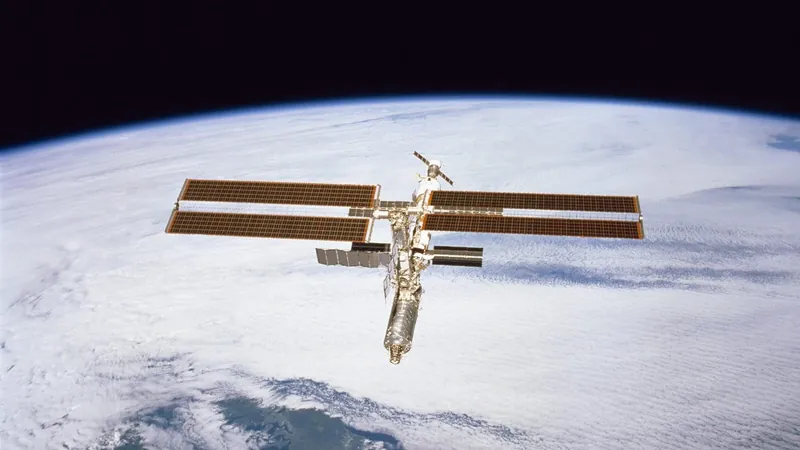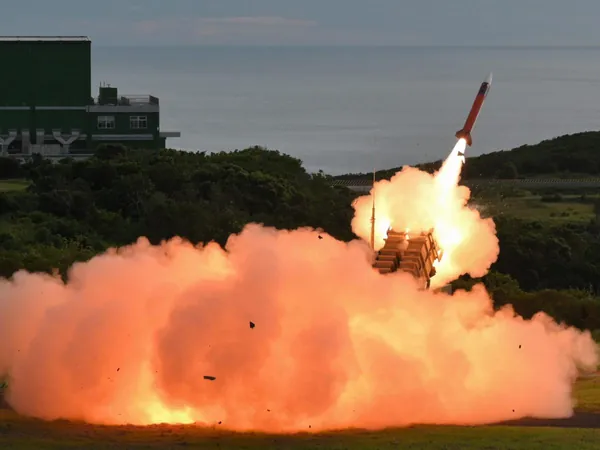
International Space Station Air Leak Crisis: A Dangerous Standoff Between NASA and Roscosmos!
2024-11-20
Author: Ting
International Space Station Air Leak Crisis: A Dangerous Standoff Between NASA and Roscosmos!
The International Space Station (ISS) is facing a critical situation as it continues to leak over three pounds of air each day, igniting fierce tensions between the American space agency NASA and Russia’s Roscosmos. The issue, which has been ongoing since 2019, is now reaching alarming levels, making it a hot topic during a recent ISS Advisory Committee meeting where it dominated discussions.
As geopolitical relations between the U.S. and Russia hit a nadir unseen since the 1980s, the possible demise of the ISS looms closer than ever. Originally launched with the intention of fostering collaboration in space exploration, the ISS has become a contentious point amidst deteriorating political ties.
The air leak, traced back to cracks in the connection between the Russian Zvezda module and the PrK transfer tunnel, is now worse than ever, with reports confirming a significant increase from 2.4 pounds per day earlier this year to a staggering 3.7 pounds.
For those unfamiliar, the ISS has been a marvel of international engineering since its inception in 1998, with contributions from NASA, Roscosmos, and space agencies from Europe and Japan. The station's design includes two primary sections: the American side, which boasts NASA and international modules, and the Russian side consisting of equipment purely from Roscosmos.
The disagreement between NASA and Roscosmos extends beyond mere facts, leading to differing opinions on the cause of the leaks. While Roscosmos attributes the issue to micro-vibrational fatigue over time, NASA points to more significant mechanical stresses.
This clash of views is particularly concerning given the implications for the safety of the astronauts aboard.
Bob Cabana, a retired astronaut and chair of the ISS Advisory Committee, voiced serious worries during the discussions. He emphasized that while the Russian team is diligently searching for solutions, there is a lack of consensus on the potential risks associated with the ongoing leaks. 'The Russians believe that continued operations are safe but they can’t prove it to our satisfaction, whereas NASA is equally concerned about structural integrity,' he stated.
This tangible uncertainty only adds to the tension as each organization struggles to assert the validity of their claims without full evidence.
As the timeline for the ISS's operational life edges closer to its planned end, the question of accountability and safety becomes paramount. With collaboration once being the backbone of its existence, could this crisis be the catalyst for a dramatic reevaluation of how international partnerships conduct space missions in the future? Stay tuned as this story develops because the fate of the ISS may very well hinge on the outcomes of these critical discussions!


 Brasil (PT)
Brasil (PT)
 Canada (EN)
Canada (EN)
 Chile (ES)
Chile (ES)
 España (ES)
España (ES)
 France (FR)
France (FR)
 Hong Kong (EN)
Hong Kong (EN)
 Italia (IT)
Italia (IT)
 日本 (JA)
日本 (JA)
 Magyarország (HU)
Magyarország (HU)
 Norge (NO)
Norge (NO)
 Polska (PL)
Polska (PL)
 Schweiz (DE)
Schweiz (DE)
 Singapore (EN)
Singapore (EN)
 Sverige (SV)
Sverige (SV)
 Suomi (FI)
Suomi (FI)
 Türkiye (TR)
Türkiye (TR)